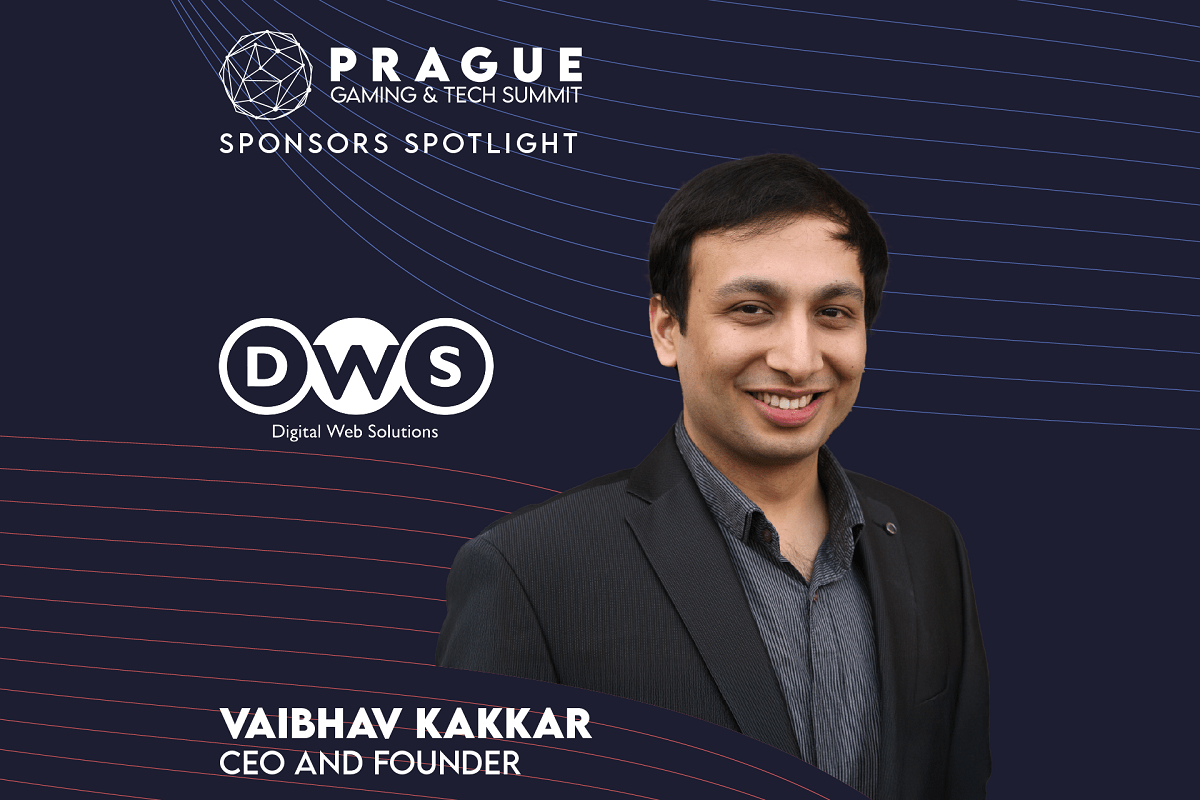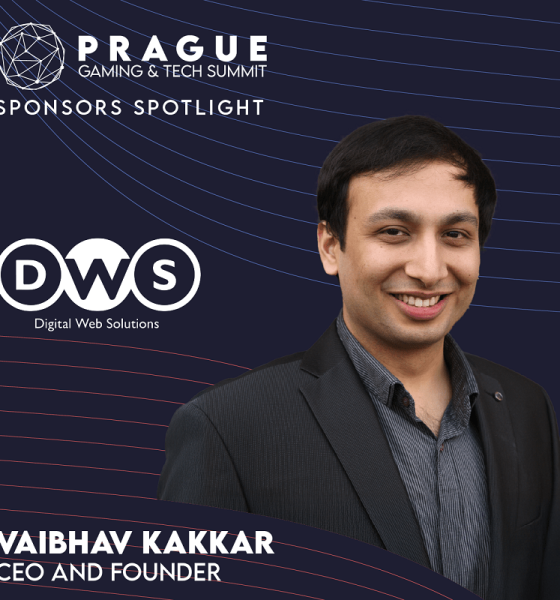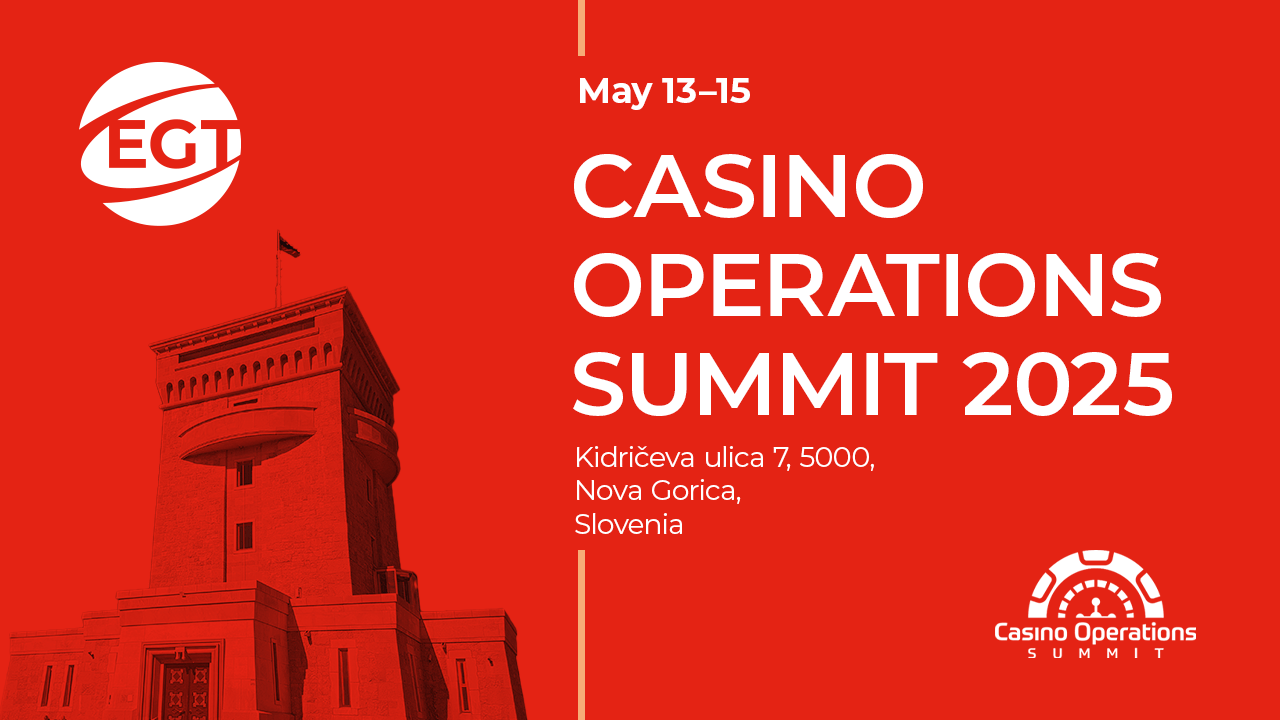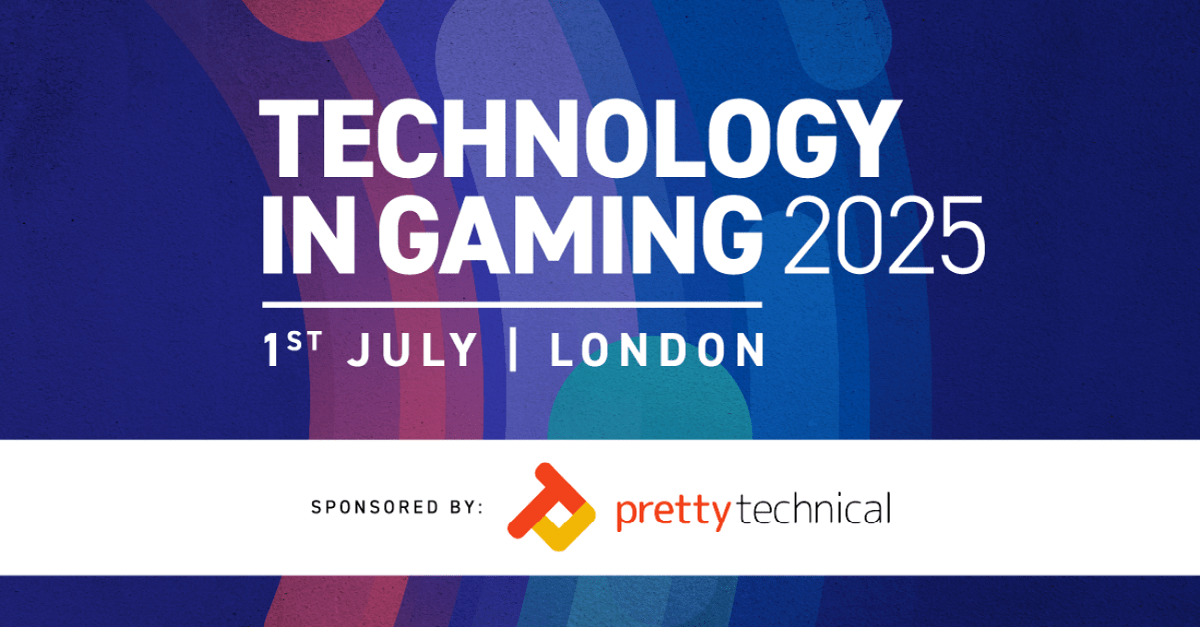

Conferences in Europe
Mastering Digital PR in iGaming: Insights from Digital Web Solutions
HIPTHER, the organizer of the Prague Gaming & TECH Summit 2025, is excited to welcome Digital Web Solutions (DWS) as the Selfie Mirror Sponsor and valuable contributor in this year’s event. In this exclusive interview, we speak with Vaibhav Kakkar, CEO and Founder of DWS, to explore how digital PR can help iGaming businesses stand out, the challenges of managing multi-country websites, and the strategies that drive effective link-building in this highly competitive industry.
Digital Web Solutions (DWS) is known for its expertise in securing high-authority backlinks and delivering data-driven digital PR. What sets DWS apart in the competitive digital marketing landscape, particularly when working with iGaming clients?
When I started building my first SEO company, SEO Next, in 2008, I saw firsthand how challenging it was to secure quality backlinks, especially in competitive industries like iGaming.
We had to build a system from the ground up, ensuring every link was high-authority, safe, relevant, and impactful. That experience shaped how we operate at Digital Web Solutions today.
For iGaming, link building isn’t just about getting placements. It’s about keeping up with regulations, avoiding risky footprints, and securing real, ranking-driven links.
That’s why we built Boogle, our proprietary tool that scans over 500 million sites each month to uncover the exact links helping competitors win.
With access to 250,000+ publishers and a 30-point quality check, we ensure our clients get links that truly move the needle—without the guesswork.
At our core, we don’t just sell backlinks. We solve SEO problems which is why we love what we do.
Managing multiple country websites is a challenge for many iGaming businesses. What advice would you give to operators looking to run multi-location websites effectively while maintaining consistency and compliance?
That’s a great question. When we scaled my previous company, we managed operations across the UK, Australia, and the US, and I quickly learned tha t running multi-location websites is more than just duplicating content—it requires a well-structured strategy.
For iGaming businesses, the biggest challenge is balancing localization with compliance. Regulations vary by country, and what works in one market could lead to penalties in another.
My advice? Invest in a strong technical SEO foundation. Use hreflang tags properly to signal language and regional variations to Google. Maintain separate URLs for each region (e.g., country-specific subdomains or subdirectories) and ensure your content isn’t just translated—it’s localized to reflect cultural and legal differences.
After years of working on this problem like any other agency, we decided to acquire Hreflang Builder—a tool designed to eliminate traffic cannibalization and ensure search engines understand which page to rank in each market.
Many enterprise CMS platforms struggle with implementing hreflang tags, and for large-scale websites, manually managing them is nearly impossible. Hreflang Builder automates the entire process, generating XML sitemaps that keep multi-location websites properly indexed and recovering lost revenue.
So, to answer your question, hreflang tags was one part of the solution but the other one is local backlink building.
From a backlink perspective, local authority matters. A .co.uk site ranking in the UK won’t benefit much from links on US-based domains. That’s why, at DWS, we focus on securing geo-relevant backlinks to help brands rank where it matters.
With multiple locations, tracking performance manually can be a nightmare. Tools like Boogle simplify this by helping businesses analyze competitors, track backlink health, and discover high-authority opportunities across different regions.
Since my team and I had been through multi-country issues countless times, I was keen on building tools and automations around it so we can solve our own problems but also serve other companies with the same solution!
Digital PR has become a buzzword in recent years. Could you share your approach to leveraging digital PR to help iGaming brands differentiate themselves in a crowded market?
Digital PR has become a buzzword because, frankly, traditional link-building isn’t enough anymore. Google’s algorithm updates have made it clear—authority, trust, and relevance matter more than ever.
Everyone in SEO is talking about Digital PR now, but many are just repackaging outdated strategies with a new name or fail to deliver to their clients. This game isn’t easy to play.
At Digital Web Solutions, we focus on what actually works: securing high-impact, niche-relevant placements that drive both rankings and brand authority.
I saw firsthand that random guest posts and directory links weren’t enough to stand out. You need to earn coverage from the right sources—where your audience actually pays attention.
Here’s how we do it differently:
- We go beyond vanity mentions. Many PR campaigns focus on getting brand names out there, but without proper SEO value. We secure editorial links on high-ranking pages, ensuring real authority transfer.
- We create stories that get picked up. Instead of generic press releases, we craft exclusive insights, data-driven reports, and unique industry trends that journalists actually want to write about.
- We leverage automation to scale where others fail. The reality is, not every agency can secure these placements—outreach alone isn’t enough. That’s why we built Boogle, our AI-powered tool that scans 500M+ sites monthly to identify and secure competitor-grade backlinks at scale.
- We understand compliance, especially in iGaming. Many agencies don’t realize how strict this industry is. A single misstep can lead to fines or de-indexing. Our team ensures every campaign meets regulatory standards while still making an impact.
Digital PR isn’t just about getting your name in the press—it’s about building credibility, earning trust, and improving rankings in a way that Google rewards.
DWS prides itself on using an AI-powered approach to link-building. Can you walk us through how this technology works and how it benefits your iGaming clients?
Absolutely. At Digital Web Solutions, we’ve spent years refining our approach to link-building, and AI has been a game-changer. Traditional link-building is slow, manual, and often hit-or-miss.
With Boogle, our AI-powered tool, we’ve automated the process of finding, analyzing, and securing high-value backlinks at scale—something no other solution offers.
Here’s how it works:
- Massive Data Processing – Boogle scans 500 million+ websites every month, identifying link opportunities that align with our clients’ SEO strategy. Instead of relying on outdated lists or guesswork, we get real-time data on what’s working now.
- Competitor Link Acquisition – iGaming is a fiercely competitive industry, and ranking well often comes down to who has the best links. Boogle analyzes competitors’ backlinks to pinpoint where they’re getting their SEO power, then finds a way to help our clients secure those same placements or even better ones.
- Advanced Filtering & Quality Control – Not all links are created equal. Our 30-point quality checklist ensures that every link meets strict SEO standards, covering factors like traffic manipulation, relevancy, and target country traffic. This is critical in iGaming, where compliance and authority matter just as much as rankings.
- Scaling What Others Can’t – Many agencies struggle to secure placements on top-ranking pages because it’s a slow, manual process. Boogle eliminates that bottleneck by using AI to automate outreach, track responses, and optimize success rates—allowing us to deliver high-quality backlinks faster and more efficiently.
If you book a call with us, we can also just guide you through the process and help your website get better links!
At the Prague Gaming & TECH Summit 2025, you will be making a Keynote Presentation titled “Game-Changing AI & SEO Strategies to Skyrocket Your Traffic.” Can you give us a sneak peek into the key insights and strategies you’ll be sharing with the audience?
Sure, let me share a little sneak peak!
I’ll be sharing real, battle-tested AI & SEO strategies from my decade of experience in SEO that help iGaming brands rank higher, attract more players, and drive real revenue.
You will walk away with tips to build better backlinks at scale, fix multi-market SEO and how to stay ahead on the SERP.
If you have any questions, there will be a Q&A session as well, and we will be having a booth at the conference too. I am excited to meet every attendee, speaker, and sponsors!
With Digital Web Solutions at the Prague Gaming & TECH Summit 2025, this year’s event promises invaluable insights into digital PR, SEO, and the evolving iGaming market. Don’t miss the opportunity to connect with industry leaders, gain exclusive market perspectives, and be part of the most dynamic gathering in the CEE region!
Join us on 25-26 March 2025 in Prague – Register now and explore the full agenda!
The post Mastering Digital PR in iGaming: Insights from Digital Web Solutions appeared first on European Gaming Industry News.
Central Europe
EGT will be a gold sponsor of Casino Operations Summit 2025

Euro Games Technology will partner with the Casino Operations Summit for another year in a row. The Bulgarian gaming equipment manufacturer will be a gold sponsor of this year’s event, taking place from May 13 to 15 in Nova Gorica, Slovenia.
The conference is tailored to European multi-channel casino operators and will traditionally bring together keynote speakers who will elaborate on the latest topics in the industry. This year’s main themes will focus on how land-based casinos can successfully address the challenges of the modern world, remaininng relevant and attractive to players, and navigate the ever-growing importance of Casino Online Systems and Casino Management Systems.
In addition, attendees will be able to enjoy a selection of EGT’s newest high-potential products. Among the highlights will be the S 32-32 ST cabinet, which is part of the latest Supreme slot series. Following the contemporary design trends with its 2 high-resolution 32-inch UHD 4K monitors and a frameless UHD 4K display, this model will offer visitors an engaging gaming experience thanks to its numerous ergonomic features. It will also present the Supreme Red Selection and Supreme Bonus Prize Bonus Buy Selection multigames. The mixes offer a rich variety of well-known and brand-new slot titles from the company’s portfolio, allowing everyone to find their preferred type of game.
The slot display will be complemented by the jackpot top performer Bell Link with the multigame Bell Link 2, Bell Link Boost, as well as the popular cabinet G 50 J2 ST.
The post EGT will be a gold sponsor of Casino Operations Summit 2025 appeared first on European Gaming Industry News.
Conferences in Europe
Portside Game Assembly announces talks and roundtables for June 27th’s premiere of the conference for indie game leaders
Gamecity Hamburg is setting sail with the premiere edition of Portside Game Assembly – a dedicated B2B conference for international indie game leaders – taking place aboard a ship cruising Hamburg’s famous harbour on June 27. With a carefully curated program of keynotes, impulse talks, and roundtables, the conference offers a rare opportunity for studio directors and decision makers to connect in a focused and collaborative setting. Designed to spark fresh perspectives and actionable insights, the event brings together voices from acclaimed indie studios worldwide like Benjamin Laulan (COO & Co-Founder Evil Empire), Philomena Schwab (Founder Stray Fawn Studio), Søren Lundgaard (CEO Ghost Ship Games), Mauricio García (Studio Director The Game Kitchen), Kevin Zuhn (Creative Director & Co-Founder Young Horses Inc.), and more speakers. Tickets for the full conference experience, including a Networking Brunch and the Games Industry Party, are available at portsideassembly.com.
As the premiere of the Portside Game Assembly on June 27 is approaching, the laser-focused program for indie game leaders takes shape.
Keynotes, impulse talks and roundtables: This is the program
By offering a confidential setting for studio directors, the Portside provides value through relevant conversations and strategic networking, which is also reflected in the diverse yet focused conference program. These are some of the program highlights:
- Keynote: Benjamin Laulan (COO & Co-Founder Evil Empire): The “Triple-i Initiative Deep Dive” keynote on how to create your own announcement space and talk directly to your audience when you can’t really relate to other existing showcases.
Impulse Blocks:Impulse Blocks consist of two to three impulse talks, all of which relate to an overarching topic, followed by an open discussion about the perspectives shown and an opportunity for participants to share their own experiences. The discussions will be moderated by Mariève Beauchemin (Programs Director & Co-Founder Indie Asylum) and Andreas Suika (Creative Director & Game Designer).
- Mining for Your Next Gem – How to Decide which Games to Develop
A defining and crucial decision for every indie game studio is: what of the (probably many) game ideas should be pursued? Where should studios allocate their resources – and what game will help a studio prevail? Three speakers will share their approaches to these questions in 10-minute impulse talks:
-
- Philomena Schwab (Founder Stray Fawn Studio): Game Idea Validation
- Jonas Tyroller (Founder Grizzly Games): You Don’t Need a Hook
- René Habermann (Director bippinbits): Don’t Ship the Wrong Game
- Games Are Made by People – How to Foster a Good Company Culture
Founding and maintaining an independent game studio and managing a small to mid-size team comes with a lot of responsibility: from growing or having to downsize a team to maintaining a company culture where talent is nurtured, developed, and kept long-term.
-
- Mauricio García (Studio Director The Game Kitchen): Keeping the Indie Mindset while Going Big
- Kevin Zuhn (Creative Director & Co-Founder Young Horses Inc.): Hold Your Horses: Why Slow is How We Grow
- From Dev to Dev – Why to Invest in Other Studios
More and more indie studios take the leap to market not only their own games but also put their resources and experiences on games from other developers. Two speakers will share their motivations and learnings from investing in games and studios that are not their own:
-
- Søren Lundgaard (CEO Ghost Ship Publishing): Developer by Day, Publisher by Night
- Christian Nyhus Andreasen (COO Fair Games): How to Lose 50% and Still Prosper – Angel Investment Lifestyle
Roundtables:
Roundtables have a more interactive concept than impulse blocks and encourage participants to discuss all aspects of the overarching question from the very beginning
- Roundtable 1: Mobile Ports – When, Why & How? Moderated by Ali Farha (Senior Producer Star Stable Entertainment)
- Roundtable 2: Stronger Together – Business Cooperations Between Indies. Moderated by Manny Hachey (Creative Director Positive Impact Games)
- Roundtable 3: (Self-)Publishing – The Good, the Bad, the Ugly. Moderated by Sophie Atkin (Director & Founder Secret Sauce)
- Roundtable 4: Longtail FTW – How to Make the Most out of Your Game. Moderated by Leonie Wolf (Associate Art Director Maschinen-Mensch)
The Portside Game Assembly website offers a detailed view on speakers, program topics and participating studios: https://portsideassembly.com/program/
The premiere of the Portside Game Assembly is supported by these great sponsors and partners: Photon and Twin Harbour Interactive!
Selection of already confirmed participants:
More than 60 studios from over 15 countries have already registered for the Portside Game Assembly conference on board the MS Princess. Besides already announced participants like Evil Empire, Stray Fawn Studio, The Game Kitchen, Toukana Interactive, Ghostship Publishing, and others, further acclaimed studios join the conference:
- Digital Sun (Moonlighter, Cataclismo) / Spain
- Keen Games (Enshrouded) / Germany
- Young Horses Inc. (Bugsnax, Octodad) / USA
- Gamious (Lake, Turmoil) / Netherlands
- Color Gray Games (The Case of the Golden Idol) / Latvia
- Massive Damage (Star Renegades) / Canada
- Beam NG (BeamNG.drive) / Germany
Further participating studios can be found on the Portside Game Assembly.
The post Portside Game Assembly announces talks and roundtables for June 27th’s premiere of the conference for indie game leaders appeared first on European Gaming Industry News.
Conferences in Europe
Inaugural iGaming Event for Technology Leaders: Technology in Gaming Conference 2025

The iGaming industry is getting a dedicated space for its most forward-thinking technical leaders with the launch of the Technology in Gaming Conference 2025 (TiG 2025) — an exclusive new event created specifically for CTOs, CIOs, and senior technology stakeholders in the iGaming world.
Taking place on 1st July 2025 as part of London iGaming Week in partnership with iGB Live!, this specialist conference will bring together some of the most innovative minds in technology to explore the future of cybersecurity, infrastructure, artificial intelligence, compliance, and scalability. TiG 2025 is designed to give technical leaders a forum tailored to the real challenges and opportunities shaping iGaming today and in the years to come.
“I am delighted to see other organisers bringing their own events that meet the need of specialist verticals within the industry as part of London iGaming week. The team at iGB L!VE are pleased to be able to support this event, and encourage iGaming senior IT professionals to join what we know will be an event that offers excellent content and networking opportunities for them” said Naomi Barton, Portfolio Director at Clarion – Organiser of iGB Live!
Topics on the agenda include:
- Scalable architecture & infrastructure
- AI & machine learning in iGaming
- Compliance & security in regulated markets
- Future-ready platform innovation
- Engineering teams, DevOps, and automation
“As an industry driven by technology I think it’s important to create a space that speaks specifically to the leaders developing and driving the change that has such a big impact on the growth and development of such an exciting sector” commented Shona ODonnell, Event Director.
Pretty Technical, a leading provider of iGaming software and platform solutions, is proud to be named the headline sponsor of this inaugural event. The company’s commitment to innovation and modern architecture makes it a natural fit for an event designed to shape the next chapter of gaming tech.
“As a business that thrives on building technology designed for the next decade, not the last, we’re thrilled to support TiG 2025 and connect with the talented tech leaders shaping the future of iGaming,” said Emma Blaylock, CEO Pretty Technical.
The event is also sponsored by Claranet, experts in modernising and managing critical applications and infrastructure 24×7, and Marshall Wolfe, a dedicated hiring consultancy specialising in digital and technology sectors.
Registration is now open with tickets currently discounted by £200 until 31st May.
The post Inaugural iGaming Event for Technology Leaders: Technology in Gaming Conference 2025 appeared first on European Gaming Industry News.
-

 gaming3 years ago
gaming3 years agoODIN by 4Players: Immersive, state-of-the-art in-game audio launches into the next generation of gaming
-
EEG iGaming Directory8 years ago
iSoftBet continues to grow with new release Forest Mania
-
News7 years ago
Softbroke collaborates with Asia Live Tech for the expansion of the service line in the igaming market
-
News6 years ago
Super Bowl LIII: NFL Fans Can Bet on the #1 Sportsbook Review Site Betting-Super-Bowl.com, Providing Free Unbiased and Trusted News, Picks and Predictions
-
iGaming Industry7 years ago
Rick Meitzler appointed to the Indian Gaming Magazine Advisory Board for 2018
-
News6 years ago
REVEALED: Top eSports players set to earn $3.2 million in 2019
-
iGaming Industry7 years ago
French Senator raises Loot Boxes to France’s Gambling Regulator
-
News7 years ago
Exclusive Interview with Miklos Handa (Founder of the email marketing solutions, “MailMike.net”), speaker at Vienna International Gaming Expo 2018


















